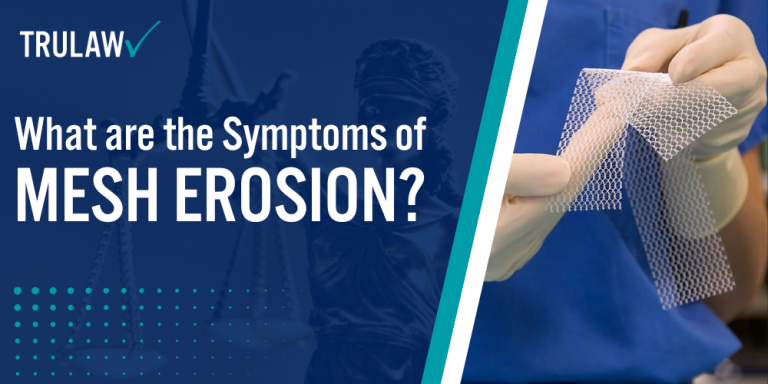Mesh erosion occurs when implanted surgical mesh devices break down or push through tissue barriers, causing various physical symptoms.
These symptoms can appear months or even years after your initial surgery, with severity varying among patients.
Learning more about these warning signs helps you seek timely medical care and protect your health.
Pelvic Pain and Discomfort
Persistent chronic pelvic pain differs from normal post-surgical discomfort and often worsens with movement or sitting.
You might experience sharp, burning sensations that weren’t present immediately after prolapse surgery.
Studies show pelvic floor pain affects up to 40% of patients after mesh placement.
This pain may radiate to your lower back, hips, or thighs, disrupting daily activities and indicating potential mesh shrinkage.
Abnormal Vaginal Bleeding and Discharge
Unusual bleeding patterns between periods and foul-smelling discharge often indicate infection in the affected area.
Blood-tinged discharge persisting beyond normal healing timeframes requires immediate attention.
These symptoms may occur within weeks or months of mesh surgery, though some patients report onset years later as mesh erosion led to tissue breakdown.
Visible Mesh Exposure
Synthetic meshes can protrude through vaginal walls, creating a rough texture you might feel during self-examination.
The FDA received 2,874 reports of mesh complications from 2008-2010, with vaginal exposure being most common.
If you notice any foreign material or unusual texture, contact your healthcare provider immediately for evaluation of potential mesh repair needs.


